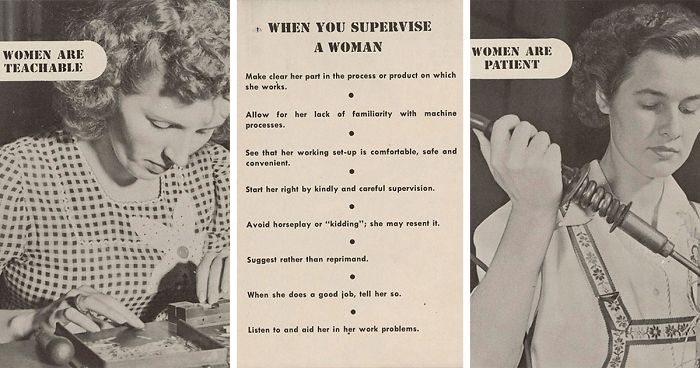
This Guide From The 1940s Told Male Bosses How To Deal With Women Employees
Human resources departments are essential to any company. They guide the office culture and employees on how they should conduct themselves – even the bosses. The blog Retronaut uncovered old supervisor manual, created by RCA in the 1940s meant to educate male bosses on how to integrate their new female co-workers into the workplace. World War II ignited a greater need for women to join the workforce, especially in factories. The manual titled ‘When You Supervise A Woman’ gives a window into how these working women in the 1940s were treated – and it may surprise you.
The #MeToo and #TimesUp movements forced a wave of change across industries, highlighting sexist practices and workplace sexual harassment that have been rampant for decades. Men have questioned how they will be able to ‘adjust’ to this new culture, of well, common decency. Maybe they can take a page from the past on how to treat your female subordinates. While the language of the manual is misogynistic some of these points are actually how any employee male or female should hope to be treated.
The 1940s saw a new kind of working woman. While women contributing to the workforce was not new, especially for minorities or lower-class women, for white-middle to high-class women there had always been a divide. Gender roles were not the only reason people balked at the idea of women working. The Depression caused such a high level of unemployment that women working was seen as stealing jobs from men.
World War II changed everything. Even before the United States joined the fight, the government had signed contracts to provide war equipment for the Allies. The war industry caused a job boom and positions needed to be filled by every able-bodied citizen – including women – but just as a temporary solution.
To encourage women to join the call to work they rolled out a propaganda campaign starring “Rosie the Riveter,” who spread the slogan “we can do it” to women across the nation. Slowly but surely they answered the call in a wave. Lower class women that were already working switched to higher-paying factory jobs, then those just graduating from high school and then eventually even married woman were targeted.
While some men didn’t want their wives working, the demand for workers became so high that even women with young children joined the working ranks. When the United States first entered World War II there were 12 million women already working and 18 million (one-third of the workforce) by the time it ended.
Even with the war efforts, most women worked in traditionally “female jobs” such as positions in the service sector. The only work sector that saw a complete mixing of genders was in factories.
The working women of the war were a crucial part of the efforts, but it still did not change societies view of a woman’s role. Factory or service jobs were seen as acceptable temporary contributions, but after the war, it was made clear to women that they were to return back to the home. Jobs demoted women into lower-paying jobs, while others laid them off completely. Rosie the Riveter faded into the background and the 1950s homemaker took her place.
People were surprised by the content of the manual
171Kviews
Share on FacebookThis list would work wonders with both men and women. It just sounds like good management.
Load More Replies...This list would work wonders with both men and women. It just sounds like good management.
Load More Replies...
 Dark Mode
Dark Mode 

 No fees, cancel anytime
No fees, cancel anytime 






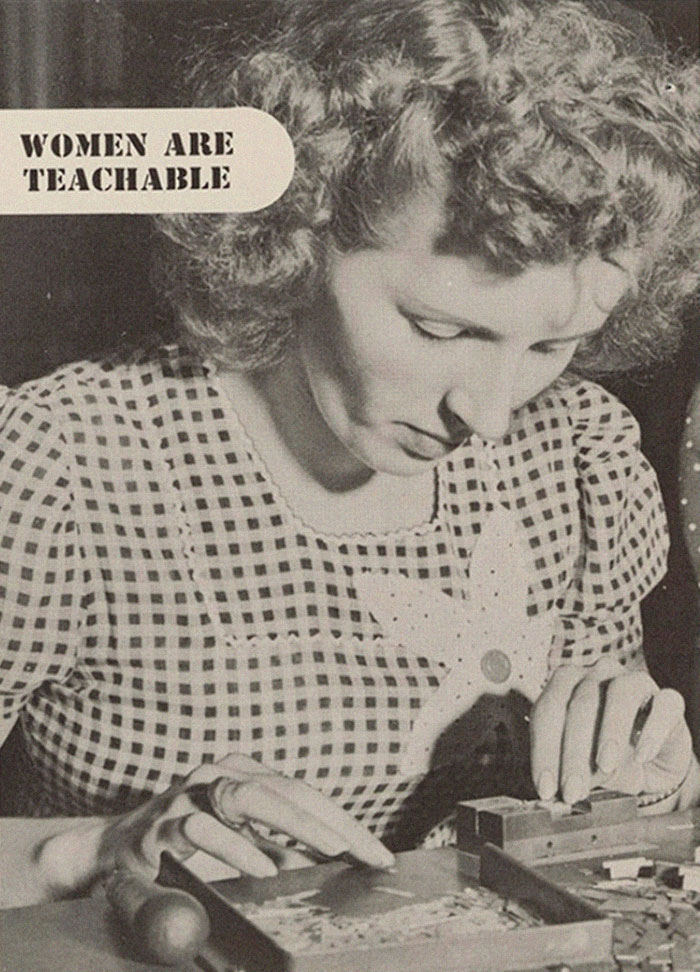
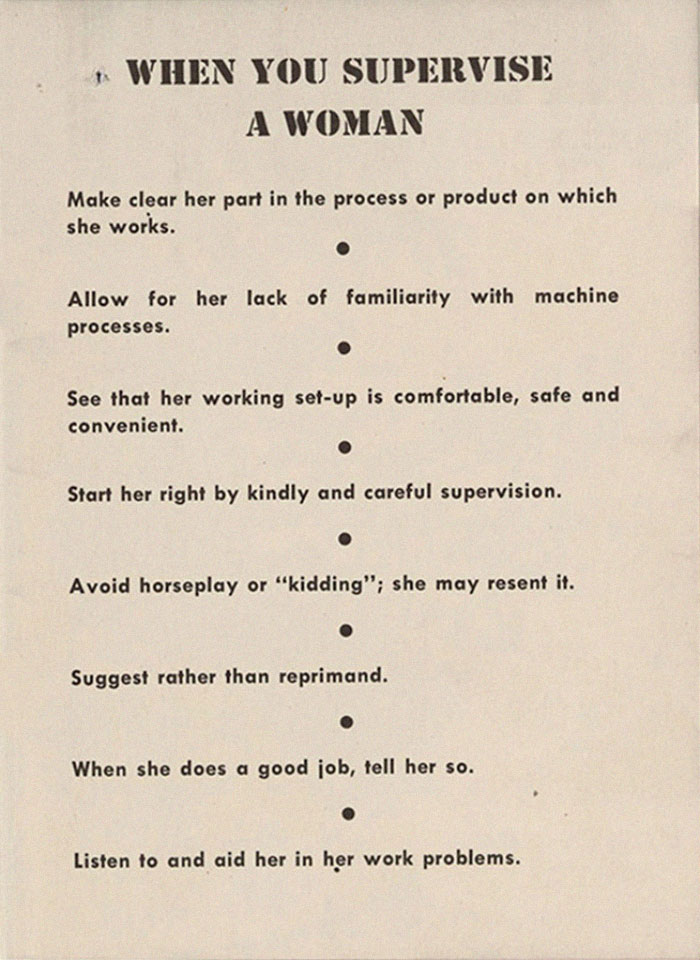
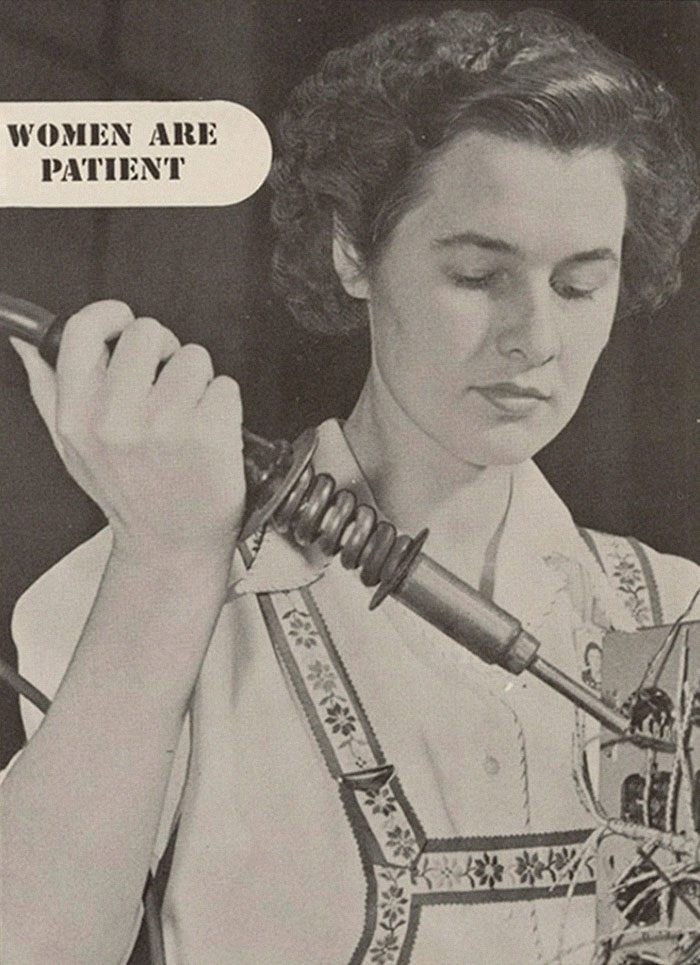
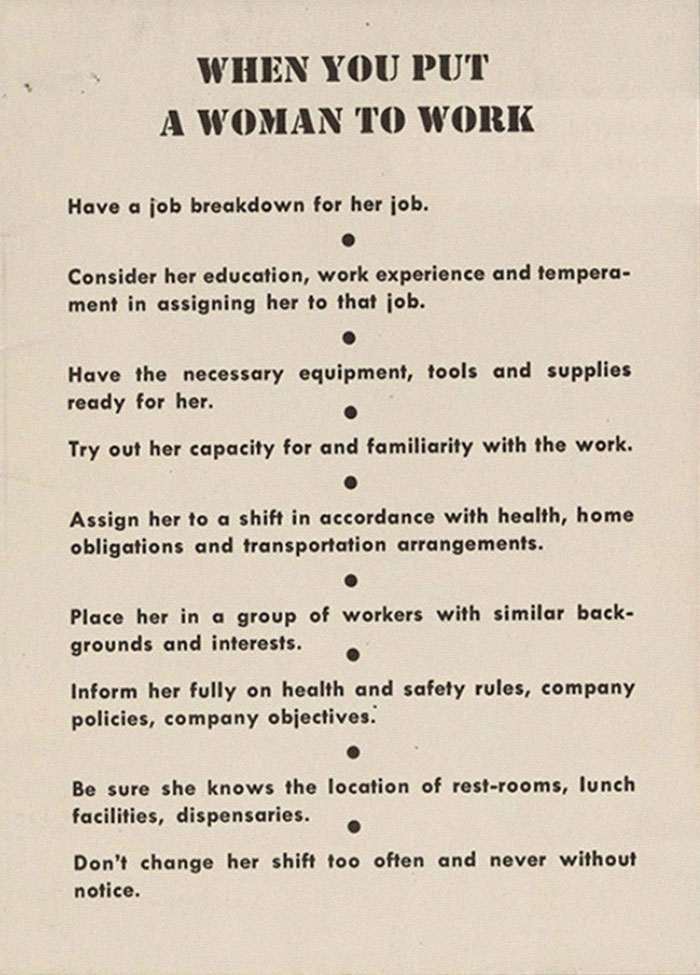
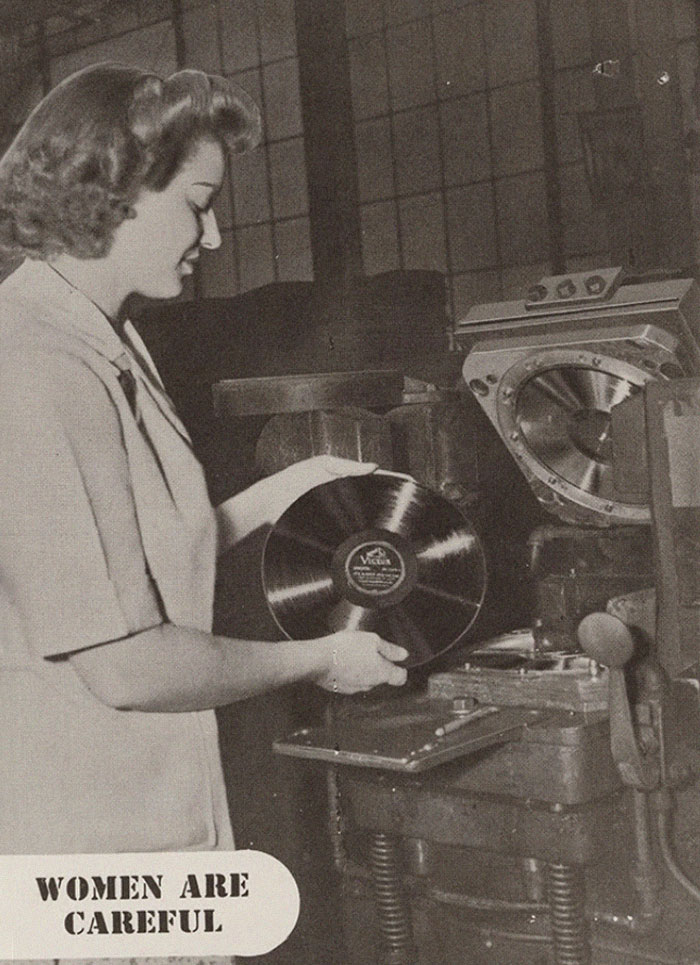
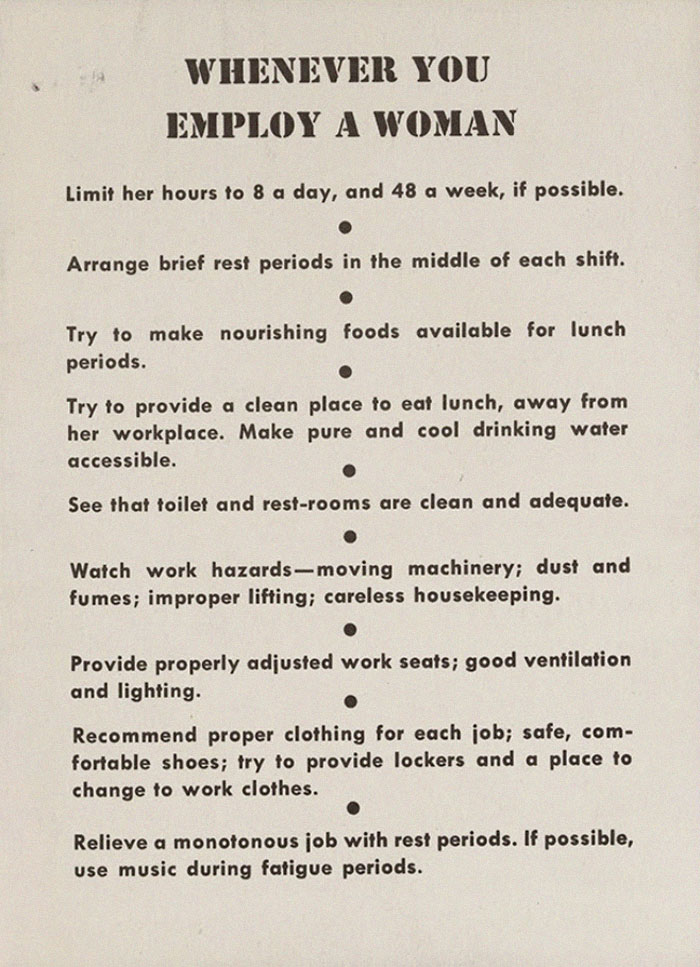
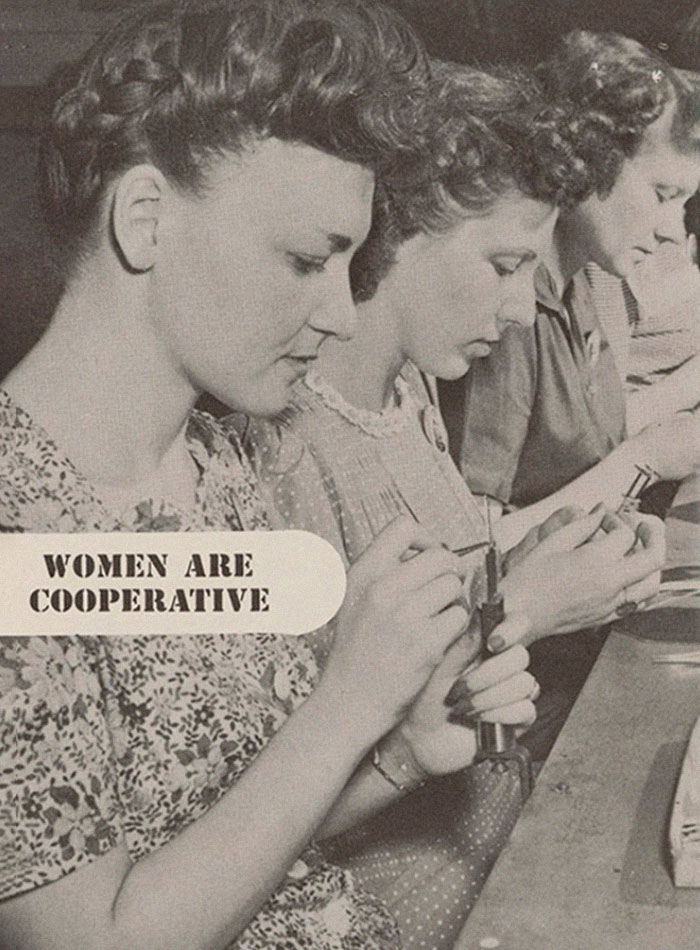
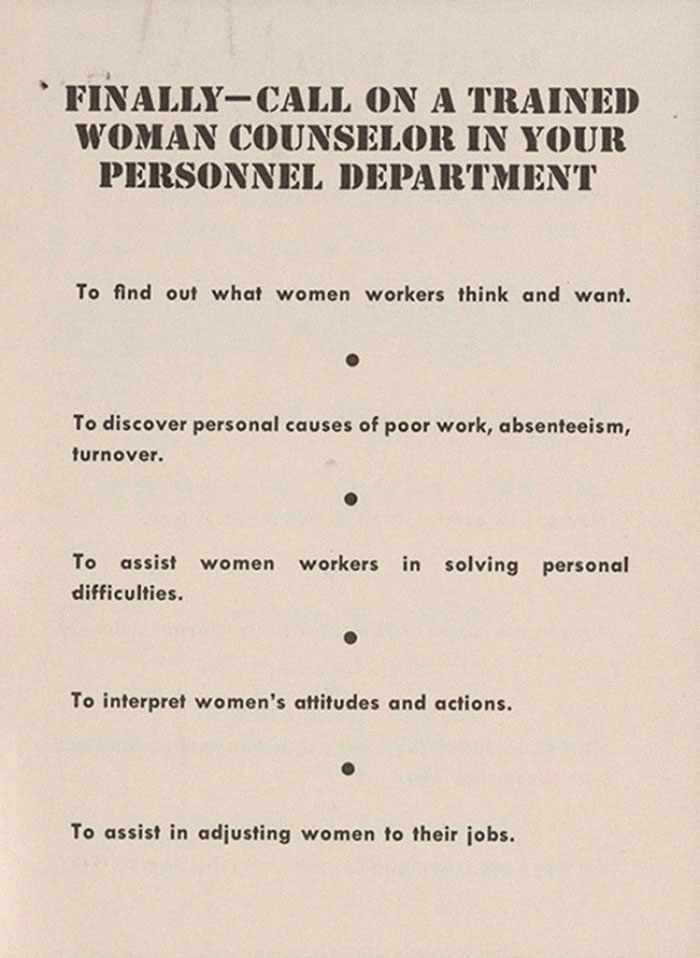
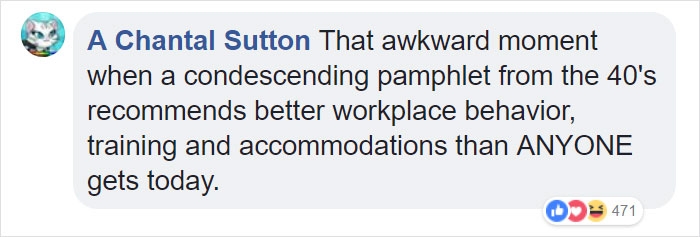









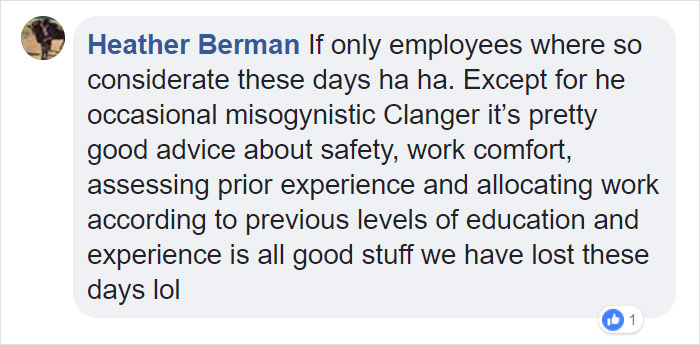










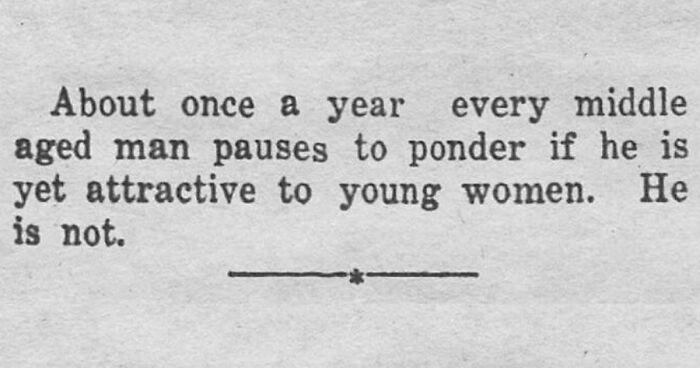
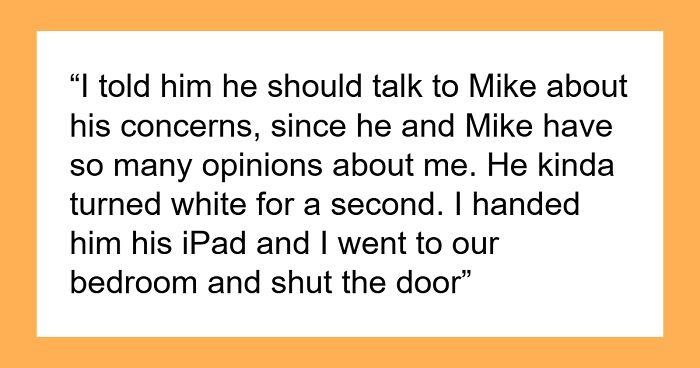































302
103